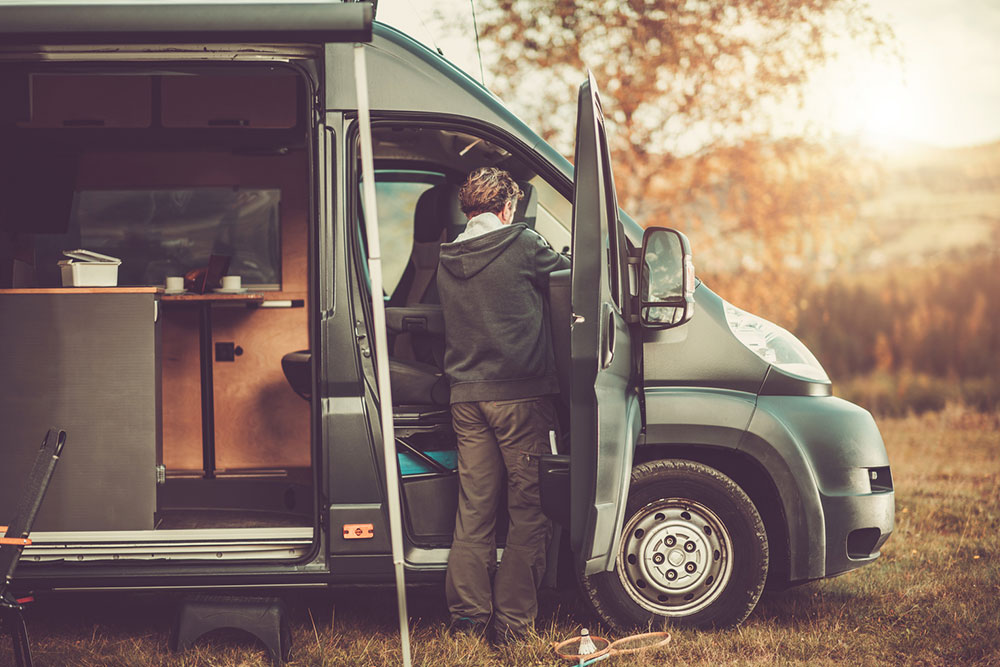
Avoid these 7 common mistakes when renting an RV
Recreational vehicles or RVs are an excellent choice for long road trips with large groups. With amenities such as fully equipped kitchens, functional bathrooms, and comfortable sleeping quarters, RVs offer an exceptional road trip experience. When considering renting an RV for an upcoming trip, it’s important to consider several factors to ensure a smooth rental process. One must also avoid common mistakes when renting an RV that can potentially detract from the overall experience.
Approaching individual owners instead of companies
As one begins searching for RV rentals, one will find that there are two major options for renting RVs. One can choose rental options from individual or independent owners or approach professional RV rental companies. At this point, choosing a reputable rental company rather than an independent owner is beneficial. And why is that? While renting from independent owners may seem convenient, it can be risky when unexpected issues arise in the middle of the trip. For instance, if the RV breaks down during the trip due to unforeseen issues, independent owners may be unable to provide immediate assistance. On the other hand, professional rental companies offer several safety features, such as rental protection, 24-hour roadside assistance, and a secure payment system to address such situations in time. Moreover, professional companies also run fraud checks on RV owners to ensure those renting the vehicles are protected from falling for potential scams.
Not picking the right RV
Before proceeding to choose an RV, it is important to identify the individual requirements and select the type of RV accordingly. There are essentially two types of RVs to choose from – motorhome RVs, which can be driven, and towable RVs, which need to be secured to another vehicle for transportation. Additionally, it is essential to determine the appropriate size of the RV that can comfortably accommodate the group in the RV. For instance, motorhomes usually have three options: Class A, Class B, and Class C, which are categorized based on their size and capacity. Class A is the largest among the three options, ranging from around 21 feet to over 40 feet long.
Selecting an RV based on its pictures
When renting an RV, it’s crucial to avoid the common mistake of solely relying on images for decision-making. This is generally not a good idea because a picture may not provide a comprehensive view of the vehicle, giving half-baked information. To make sure one’s selecting a well-equipped, functional RV with all the required amenities, it’s important for renters to thoroughly read its description . The description of the vehicle will, in fact, mention all the details about the amenities, key features, charges, hidden fees, and accommodation capacity. Renters should verify that the RV they are considering actually possesses all the necessary amenities mentioned in the description.
Not researching locations and parking spaces
Going on road trips with RVs can be a fun experience, but there is also a tiny loophole that many often overlook. This main problem is the unavailability of parking spaces at the planned stops, and in many places, parking is not free of charge. So, before renting an RV, it is important to ensure that the places one plans to camp have available parking spaces at any given time. Making reservations for paid parking spaces is also a good idea to avoid any stressful situations during the trip.
Not researching routes
Along with parking spaces, one would also need to research the routes of the trip. This is to make sure that the route they plan to take is suitable for the RV. For instance, some roads could be too narrow, which would make it almost impossible for a big-size RV to go through. Likewise, if there are any overpasses or tunnels on the route, one would also need to check their clearance dimensions to check if they are big enough for their RV to pass through. Also, if the routes have sharp turns, maneuvering towable RVs can get even more difficult. Having clear information about the routes can help one steer clear of obstacles on their trip and prevent them from getting stuck with their rented vehicles.
Not reading reviews
Besides checking photos and descriptions of RVs before renting one, it is also advisable for individuals to check the reviews online. Most professional rental companies display customer ratings and reviews on their website for every RV listing. Checking these reviews, testimonials, and feedback from past users ensures that one is choosing a good vehicle with comfortable accommodations and well-functioning features.
Not reading the rental rules
When renting an RV, it is imperative for renters to carefully review the rules and guidelines outlined in the rental contract or on the company’s website. It is essential to strictly adhere to them during the trip to ensure a smooth and safe experience. Among these rules, renters will often find information about the daily driving limit, which specifies how long it’s permissible to drive the RV each day . Additionally, the guidelines may cover proper handling of the RV and its various features to ensure safe operation. Breaching these rules can lead to potential consequences such as forfeiture of the deposit, safety hazards, and an overall negative road experience.





